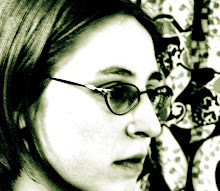The newborn infant, with his skin crying out for the ancient touch of smooth, warmth-radiating, living flesh, is wrapped in dry, lifeless cloth. He is put in a box where he is left, no matter how he weeps, in a limbo that is utterly motionless (for the first time in all his body’s experience, during the eons of its evolution or during its eternity of bliss in the womb). The only sounds he can hear are the wails of other victims of the same ineffable agony. The sound can mean nothing to him. He cries and cries; his lungs, new to air, are strained with the desperation in his heart. No one comes. Trusting in the rightness of life, as by nature he must, he does the only act he can, which is to cry on. Eventually, a timeless lifetime after, he falls asleep exhausted.
He awakes in a mindless terror of the silence, the motionlessness. He screams. He is afire from head to foot with want, with desire, with intolerable impatience. He gasps for breath and screams until his head is filled and throbbing with the sound. He screams until his chest aches, until his throat is sore. He can bear the pain no more and his sobs weaken and subside. He listens. He opens and closes his fists. He rolls his head from side to side. Nothing helps. It is unbearable. He begins to cry again, but it is too much for his strained throat; he soon stops. He stiffens his desire-racked body and there is a shadow of relief. He waves his hands and kicks his feet. He stops, able to suffer, unable to think, unable to hope. He listens. Then he falls asleep again.
When he awakens he wets his diaper and is distracted from his torment by the event. But the pleasant feeling of wetting and the warm, damp, flowing sensation around his lower body are quickly gone. The warmth is now immobile and turning cold and clammy. He kicks his legs. Stiffens his body. Sobs. Desperate with longing, his lifeless surroundings wet and uncomfortable, he screams through his misery until it is stilled by lonely sleep.
(...)
Someone comes and lifts him deliciously through the air. He is in life. He is carried a bit too gingerly for his taste, but there is motion. Then he is in his place. All the agony he has undergone is nonexistent. He rests in the enfolding arms, and though his skin is sending no message of relief from the cloth, no news of live flesh on his flesh, his hands and mouth are reporting normal. The positive pleasure of life, which is continuum normal, is almost complete. The taste and texture of the breast are there, the warm milk is flowing into his eager mouth, there is a heartbeat, which should have been his link, his reassurance of continuity from the womb, there is movement perceptible to his dim vision. The sound of the voice is right, too. There is only the cloth and the smell (his mother uses cologne) that leave something missing. He sucks and, when he feels full and rosy, dozes off.
(...)
Home is essentially indistinguishable from the maternity ward except for the chafing. The infant’s waking hours are passed in yearning, wanting, and interminable waiting for rightness to replace the silent void. For a few minutes a day, his longing is suspended and his terrible skin-crawling need to be touched, to be held and to be moved about, is relieved. His mother is one who, after much thought, has decided to allow him access to her breast. At first, it is hard to put him down after his feeding, especially because he cries so desperately when she does. But she is convinced that she must, for her mother has told her (and she must know) that if she gives in to him now he will be spoiled and cause trouble later. She wants to do everything right; she feels for a moment that the little life she holds in her arms is more important than anything else on earth.
(...)
Softly, she closes the door. She has declared war upon him. Her will must prevail over his. Through the door she hears what sounds like someone being tortured. Her continuum recognizes it as such. Nature does not make clear signals that someone is being tortured unless it is the case. It is precisely as serious as it sounds.
She hesitates, her heart pulled toward him, but resists and goes on her way. He has just been changed and fed. She is sure he does not really need anything, therefore, and she lets him weep until he is exhausted.
He awakens and cries again. His mother looks in at the door to ascertain that he is in his place; softly, as so not to awaken in him any false hope of attention, she shuts the door again. She hurries to the kitchen, where she is working, and leaves that door open so that she can hear the baby, in case “anything happens to him”.
Fragment din The continuum concept (In search of happiness lost)- Jean Liedloff
Acum 7 ani












10 comentarii:
tocmai am terminat de citit cartea si as avea si eu multe de spus. dar partea asta chiar ma gandeam s-o pun si eu pe blog, asa de bine-i scrisa, extraordinar!
io-s fan, pasionata, cum vreti
Si plang, plang la gandul rupturii de continuum ce urla din unii adulti... Si as vrea sa le fiu punte le legatura cu continuum... si nu intotdeauna pare sa functioneze. SI iarasi plang, inauntru.
D-apoi cand functioneaza, nici nu-mi vine sa cred, parca nu-i adevarat, ce profunzimi se deschid, ce relatii autentice cresc. Oare ce erau inainte?
si eu am citit cartea, dar e asa bine sa recitesc din cand in cand cate un pasaj.
merci pt citate :)
visez la cat mai multi parinti cititori de conceptul continuum. Oare nu ar posibila traducerea ei in romana?
Traduc la ea.
Inca nu mi-a confirmat editura ca o tipareste, dar urmeaza.
Eu inca nu am terminat-o, sunt pe la jumatate (asta cu toate ca de cumparat am cumparat-o acum aproape doi ani, lenesa de mine).
Dragosh a vrut sa citeasca postarea si dupa primul paragraf s-a oprit si a intrebat cine scrie asa lucruri ingrozitoare; ca el nu poate citi asa ceva. Deci da, e extraordinar scrisa. Si din pacate nu-i fictiune.
Adelle, parca de tradus incerca Claudia ceva. Nu stiu acuma cum mai sta (cum mai stai?:P). Dar ar fi tare bine sa apara si la noi, ar avea mult mai multa lume acces la ea, pentru ca de citit in engleza nu-i foarte comod pentru oricine. Speram!
:D Tare prompta ai fost :)
nu au "de fapt" nevoie de nimic altceva, decat sa se simta "bine in pielea lor", sa-si afle locul... loc pe care apoi il cautam si-l tot cautam ca adulti, altundeva si altadata si in alta relatie, numai Aici si Acum, unde se afla de fapt, nu. Ca nu stim, ca ne-am deprins prea tare cu disperarea :(
Sa fie continuum!
Claudia, ma bucur mult sa aflu ca traduci la ea. E destul de groaie de citit in engleza. Spor la lucru, sper ca editura sa accepte si sa ne tii la curent. :)
pentru postari de genul asta sunt eu fan al blogului tau :) data viitoare cand mai vin in Baia Mare imi fac un banner cu blogul asta si te astept in parc :))
:)))) No de-abia astept :))
Trimiteți un comentariu